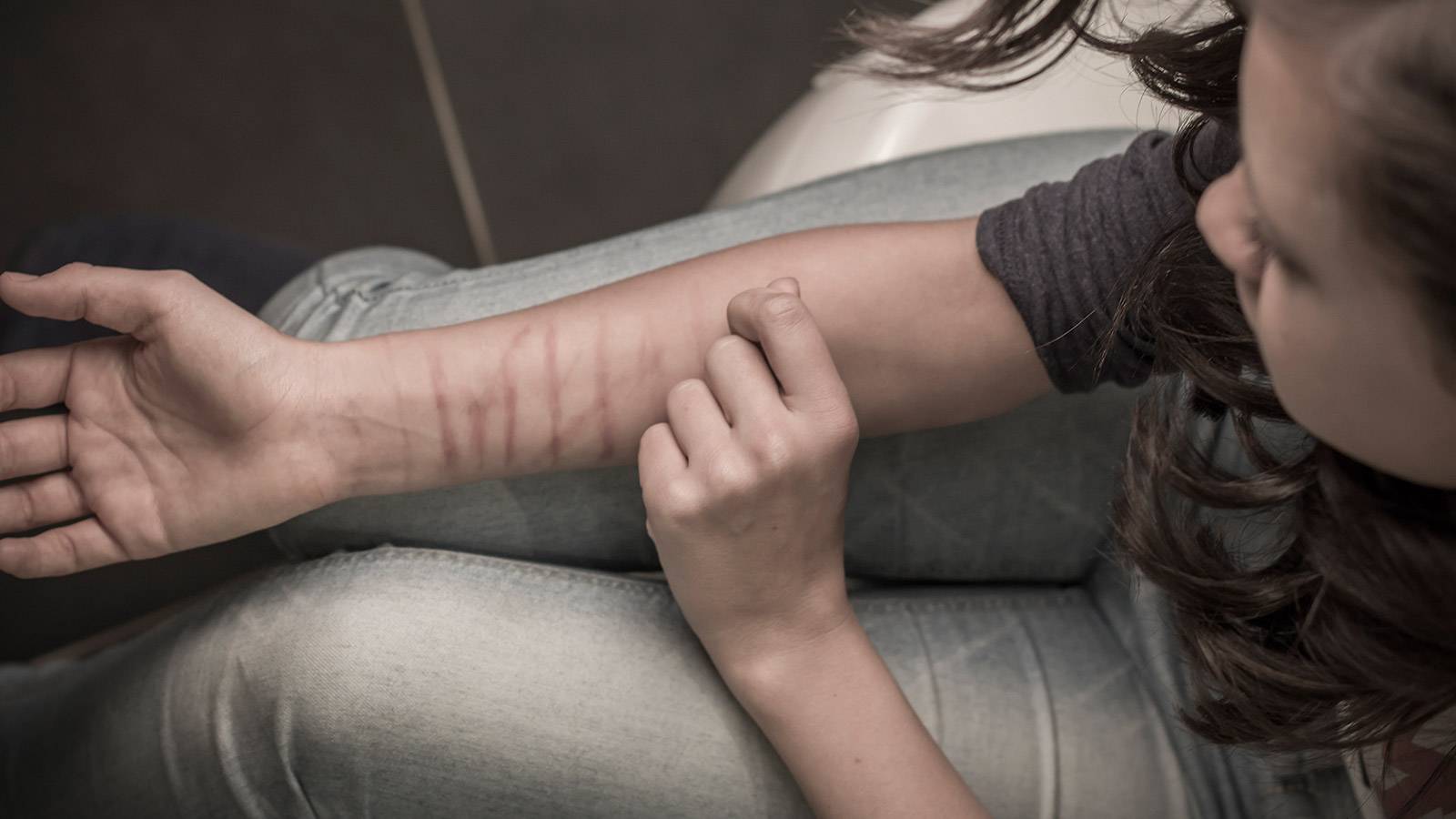Learn how to spot the signs that your kid is hurting themselves and find out where to get help!

Puberty can be a challenging time for your tween, not only do their bodies go through various changes, they are learning their own identity. It’s no surprise then that these changes can impact their well-being.
Notes Dr Vanessa von Auer, a clinical psychologist and director of VA Psychology Center, notes that acts of self-harm tend to also occur when your child reaches their tween or teen years.
She explains, “They become more aware of pressures around them such as fitting in socially, coping with academic pressures, making their parents or families proud and of course, grappling with self-identity and coming to terms with an evolving body.”
As parents, being authoritarian, inflexible and putting too much pressure on your children to do well can make them feel hopeless, anxious and not in control of their lives.
“Our kids are being put under more pressure at an earlier age and this has consequences for children as they’re not emotionally equipped to deal with these pressures.”
This emotional pain your child feels may make them turn to carrying out physical acts of harm to get relief. Dr von Auer explains that acts of self-injury can trigger the release of “feel-good” chemicals — called endorphins — in their bodies similar to the effects of abusing cocaine. This can lead to a vicious cycle where your child turns to harming themselves to numb the pain.
Incidentally, acts of self-injury can also go beyond self-mutilation — or cutting oneself with a sharp object like a razor or knife. Dr von Auer says that it can include actions like head banging, pinching, scratching, burning and even ingesting harmful substances.
Incontact Counselling and Training Centre’s counsellor, Fiona Maher O’Sullivan, points out that based on her experience, acts of self-injury among children in Singapore is on the rise. “Our kids are being put under more pressure at an earlier age and this has consequences for children as they’re not emotionally equipped to deal with these pressures.”

Dr von Auer and O’Sullivan offer their advice on helping your self-harming child…
What are the signs of self-injury?
It is crucial for parents to spot the signs of self-harm as early as possible, so that they can get junior the help they need. Contrary to common belief, O’Sullivan points out that self-harm is not linked directly to suicidal thoughts. Injuring oneself is actually a cry for help, notes Dr von Auer. “This behaviour indicates that the child does not have effective tools to cope with her current day-to-day life.”
Both experts say you should keep an eye out for these changes in your child’s behaviour:
* A sudden or unexplained bruising on the body.
* Wearing clothing to cover self-injuries such as long trousers or long-sleeved shirts, even in warm weather.|* Changes in mood or eating habits, sleep routines.
* Withdrawing from loved ones and spending more time alone.
* Not communicating or a total communication breakdown.
* Losing interest in things they used to enjoy.
* Changes in mood or sudden mood swings.
* Performing poorly school.
* They may also have eating disorders.
Where can I get help?
Remember, ignoring your child’s behaviour or becoming angry or upset and overreacting will not help junior’s well-being. O’Sullivan suggests, “Get help from a doctor or counsellor as soon as you can and reach out to others and you will find help — your child is not the first or last to do so.”
“Get help from a doctor or counsellor as soon as you can and reach out to others and you will find help — your child is not the first or last to do so.”
In addition to getting treatment for your child, Dr von Auer stresses that it may be helpful for you to learn — with the help of a therapist — how to better communicate, appreciate and support your child. “It may also be helpful for the entire family to engage in family therapy to improve and strengthen the family dynamic.”
My child’s classmate is hurting herself, what should I do?
You should take time to hear your child’s thoughts and feelings about seeing their friend hurt themselves. Dr von Auer says it’s an opportunity for you to let your own children know they can come to you for help without consequences. Alert the school teachers in private, so they can help to monitor the safety of your child’s friend and meet with their parents to discuss safety concerns.
Any advice on dealing with parental guilt?
If your guilt feels too much to bear, O’Sullivan says having a session or two with a counsellor will also help you deal more effectively with your troubled child.
Dr von Auer stresses that you should take a proactive stance in helping your child as well. “You should attempt to lessen a child’s stress, bring them for therapeutic intervention and show them that you’re there for your child, no matter what. But don’t force yourself on them — instead you should try to encourage open communication.”
Photos: iStock
Like us on Facebook and check SmartParents regularly for the latest reads!
Elsewhere on SmartParents.sg…
Junior’s making offensive gestures — what do I do?
